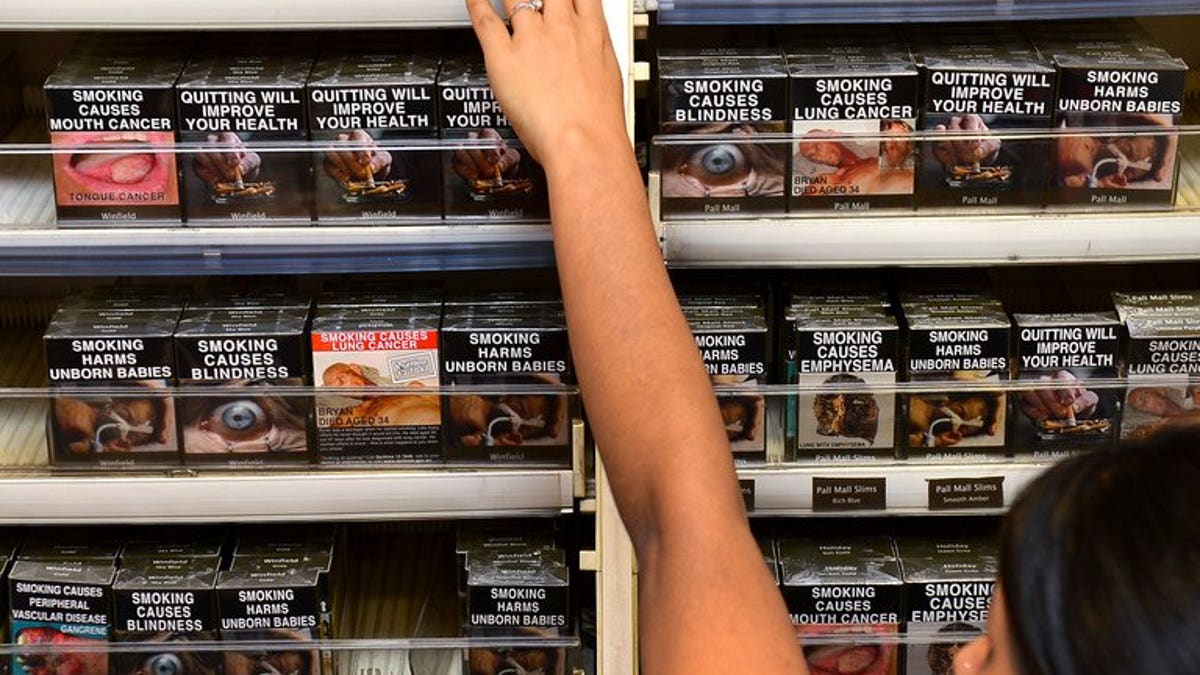
An employee adjusts packaged cigarettes which have to be sold in identical olive-brown packets bearing the same typeface and largely covered with graphic health warnings, in Sydney on December 1, 2012. Honduras on Friday raised the pressure on Australia over its landmark plain packaging rules for tobacco by launching a full-blown dispute at the World Trade Organization, the global body said. (AFP/File)
GENEVA (AFP) – Honduras on Friday raised the pressure on Australia over its landmark plain packaging rules for tobacco by launching a full-blown dispute at the World Trade Organization, the global body said.
The WTO said that Honduras, one of four countries that say they oppose Australia's legislation on commercial grounds, had requested the formation of a dispute settlement panel to settle the issue.
It is the second time that Honduras has made such a request. Its first attempt in November 2012 was blocked by Australia, a move allowed just once under WTO rules.
Australia's pioneering legislation, passed in 2011 and in force since last December, aims to curb smoking by requiring tobacco products to be sold in drab green boxes with the same typeface and graphic images of diseased smokers.
Given that the legislation covers all tobacco products, not just cigarettes, it been challenged at the WTO by Honduras and fellow cigar-producing nations Cuba and the Dominican Republic.
Australia blocked the Dominican Republic's first request for a panel in December 2012, and the country has not made a second one yet.
In what is its first-ever WTO case as a plaintiff, meanwhile, Cuba has not moved beyond requesting consultations with Australia, a warning shot under the WTO system.
The first country to challenge the law was Ukraine, in March 2012.
The process was put on ice eight months later at Ukraine's request, before being reactivated last month, but the dispute settlement panel has not yet been formed.
The plaintiff countries maintain that Australia's law breaches international trade rules and intellectual property rights to brands -- arguments rejected by Canberra and which also failed to convince Australia's High Court in a case brought by tobacco firms.
The Geneva-based WTO oversees its 159 member economies' respect for the rules of global commerce. Its dispute settlement process, steered by independent trade and legal experts, can last for years.
In the event that the plaintiffs won their case, the WTO's disputes settlement body would have the power to authorise retaliatory trade measures against Australia if the country failed to fall into line.
